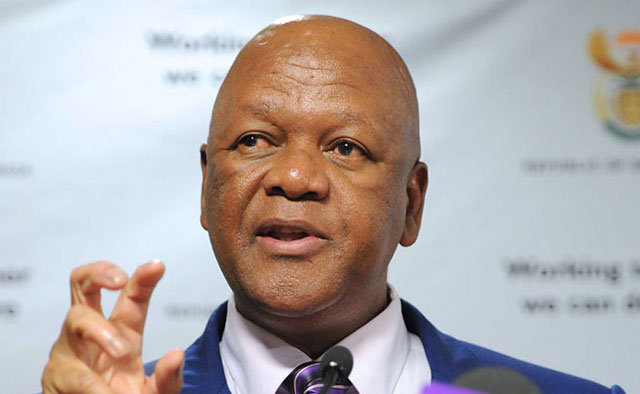
The department of energy will in the next few days unveil South Africa’s new integrated energy plan, minister in the presidency Jeff Radebe said on Thursday.
Briefing the media on the outcomes of a cabinet meeting held on Wednesday, Radebe said the final document contains the input given by all cabinet ministers at a meeting where the initial discussion had taken place some weeks ago.
Radebe was asked if the finally approved document differed from the one the department of energy had presented to which he answered in the affirmative.
“The version that will be published for public comment and released by energy minister Tina Joemat-Pettersson will be the document that was discussed by cabinet,” Radebe said.
To further clarify the matter, Radebe said: “The line function department (energy in this instance) submits a document for discussion and the end result is the input given by the collective (all the various departments).”
The integrated energy plan is expected to contain more detail about South Africa’s nuclear build programme and the amount of generation capacity that will be allocated to nuclear power.
The department of energy said on a number of occasions that it would submit a request for proposal to procure a total of 9,6GMW of nuclear power.
Energy analysts and economists have warned, though, that South Africa is not in need of nuclear as part of its energy mix as the demand for power has decreased as economic growth slumped, while renewable energy projects have also been added to the grid which relieve electricity pressure.
Eskom CEO Brian Molefe, on the other hand, who recently announced his decision to leave Eskom on 1 January 2017, has been a fierce advocate of nuclear power, saying South Africa would experience the same kind of energy shortages by 2030 if it doesn’t quickly act on a nuclear build programme.
Meanwhile, Radebe said government was concerned about the risks and challenges highlighted in the audit results. Auditor-general Kimi Makwetu announced in a media conference on Wednesday that national and provincial departments incurred R46bn in irregular expenditure in the 2015/2016 financial year, despite an 8% improvement in the number of clean audits among national departments.
“All ministers must ensure they implement corrective measures so that there’s no recurrence of poor audit results,” he said.
Asked if government would support the call for the AG’s powers and recommendations to be binding, Radebe said although the matter hasn’t been discussed at the cabinet meeting he in his personal capacity would “support any effort that would improve the quality of audits” at government level.
“I suspect my colleagues would agree with this. We need to go beyond the call of duty to hear what the AG is saying and we fully support that those responsible should be held to account,” Radebe said.




